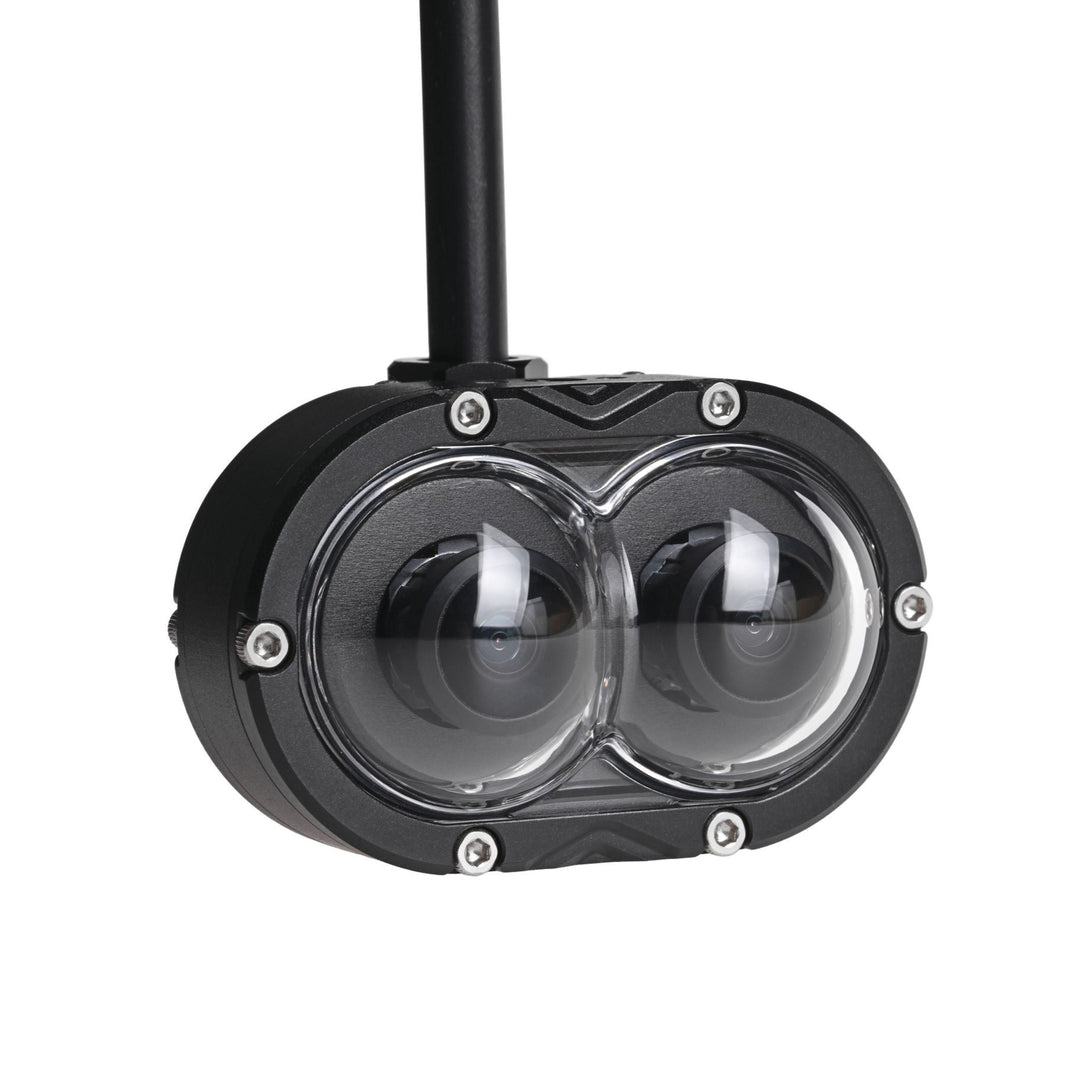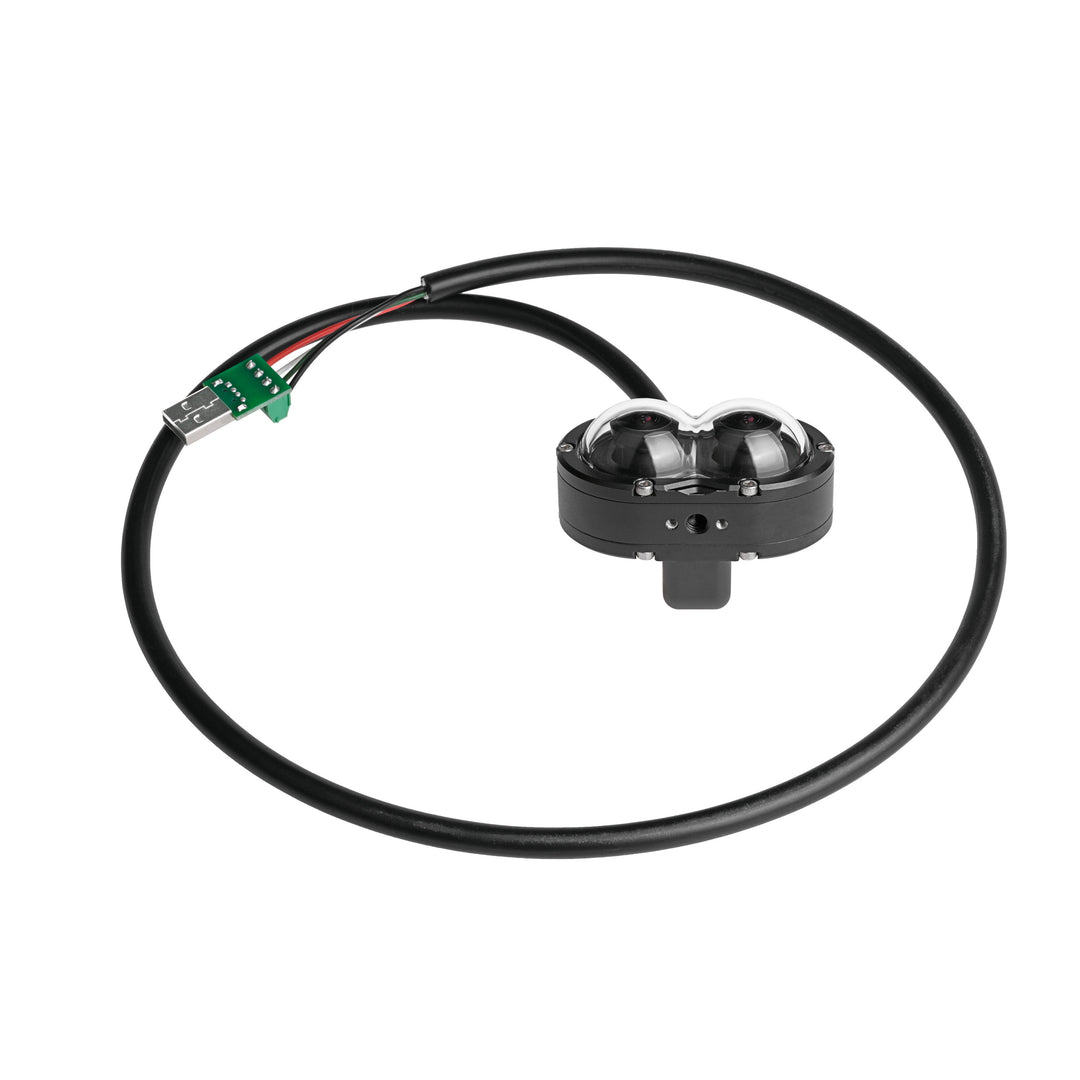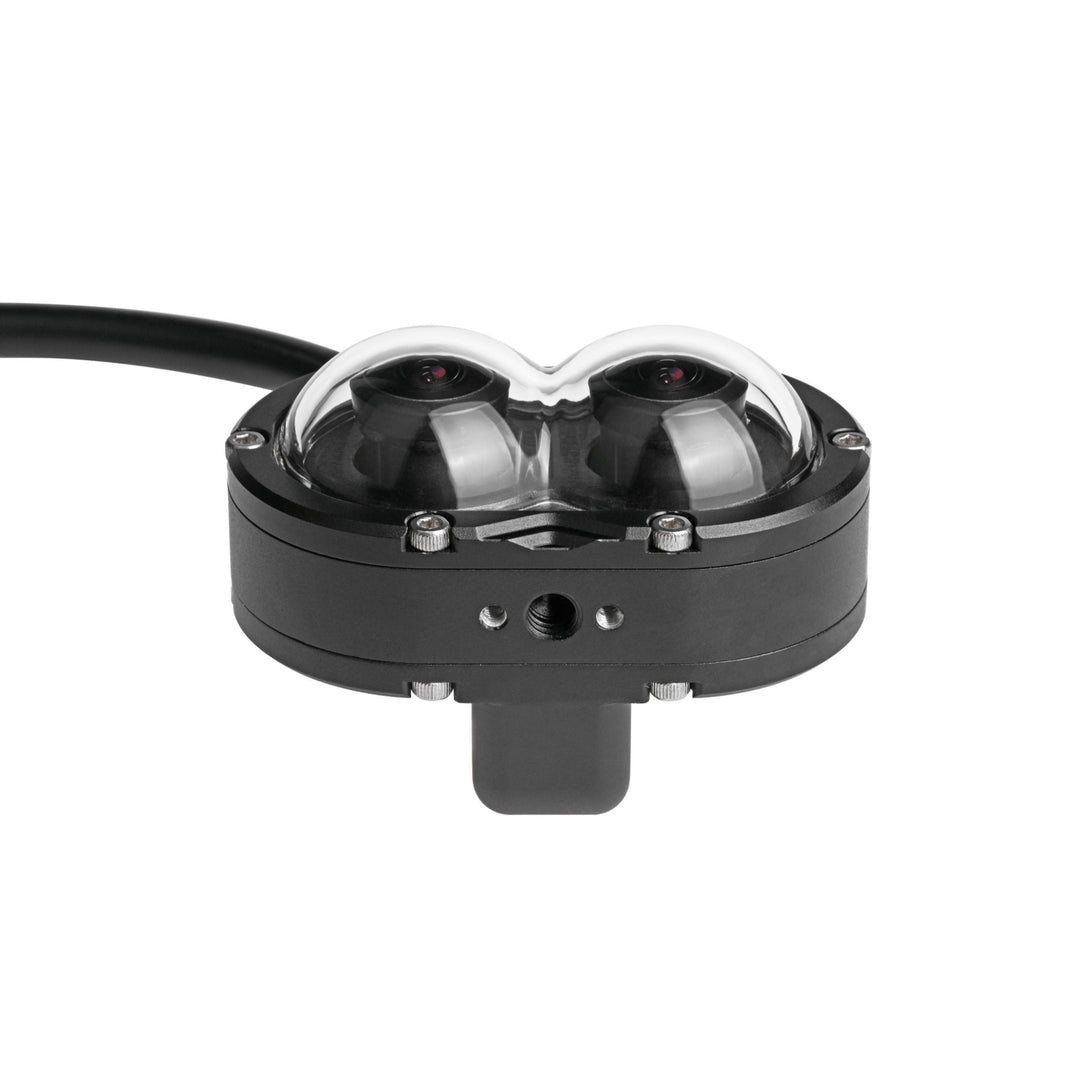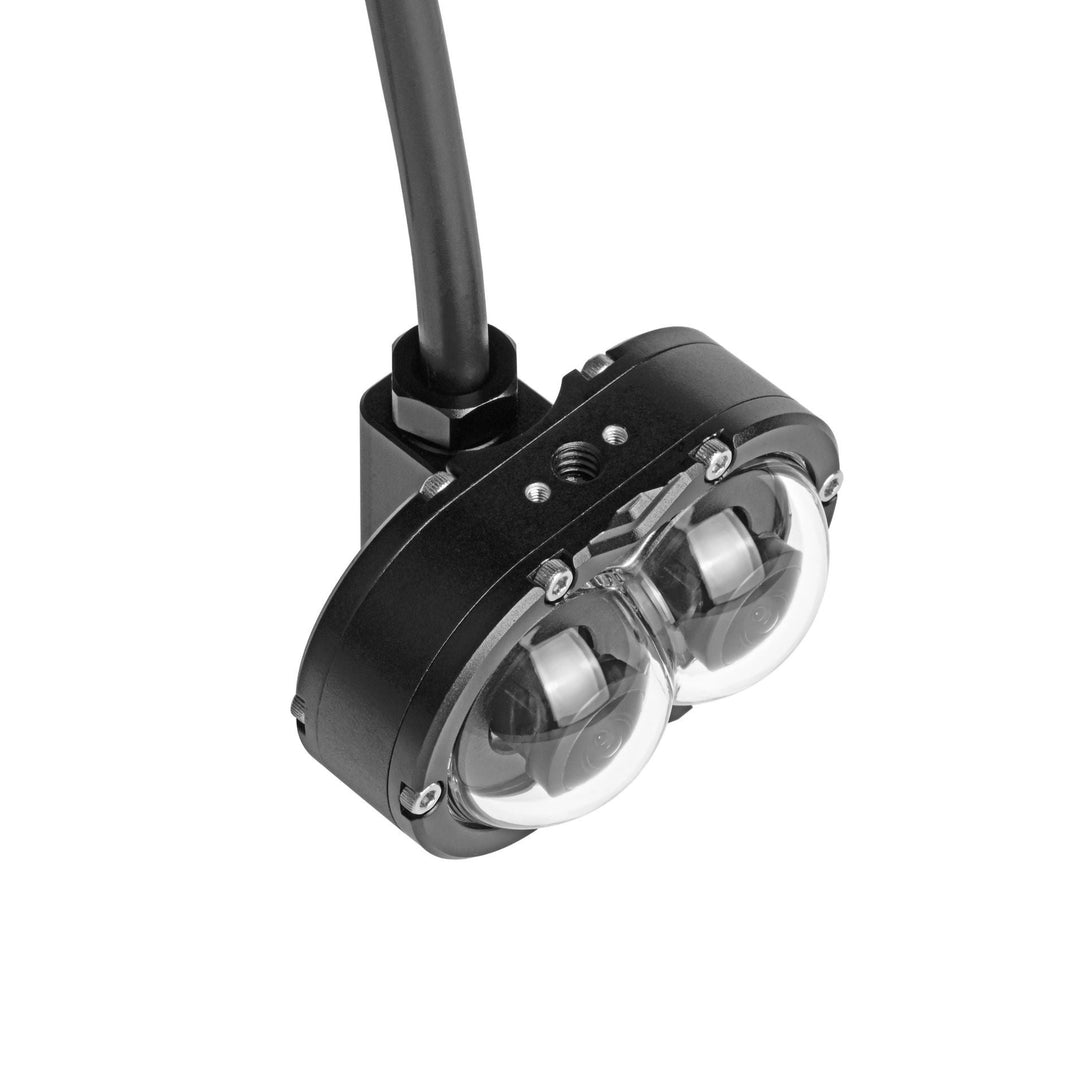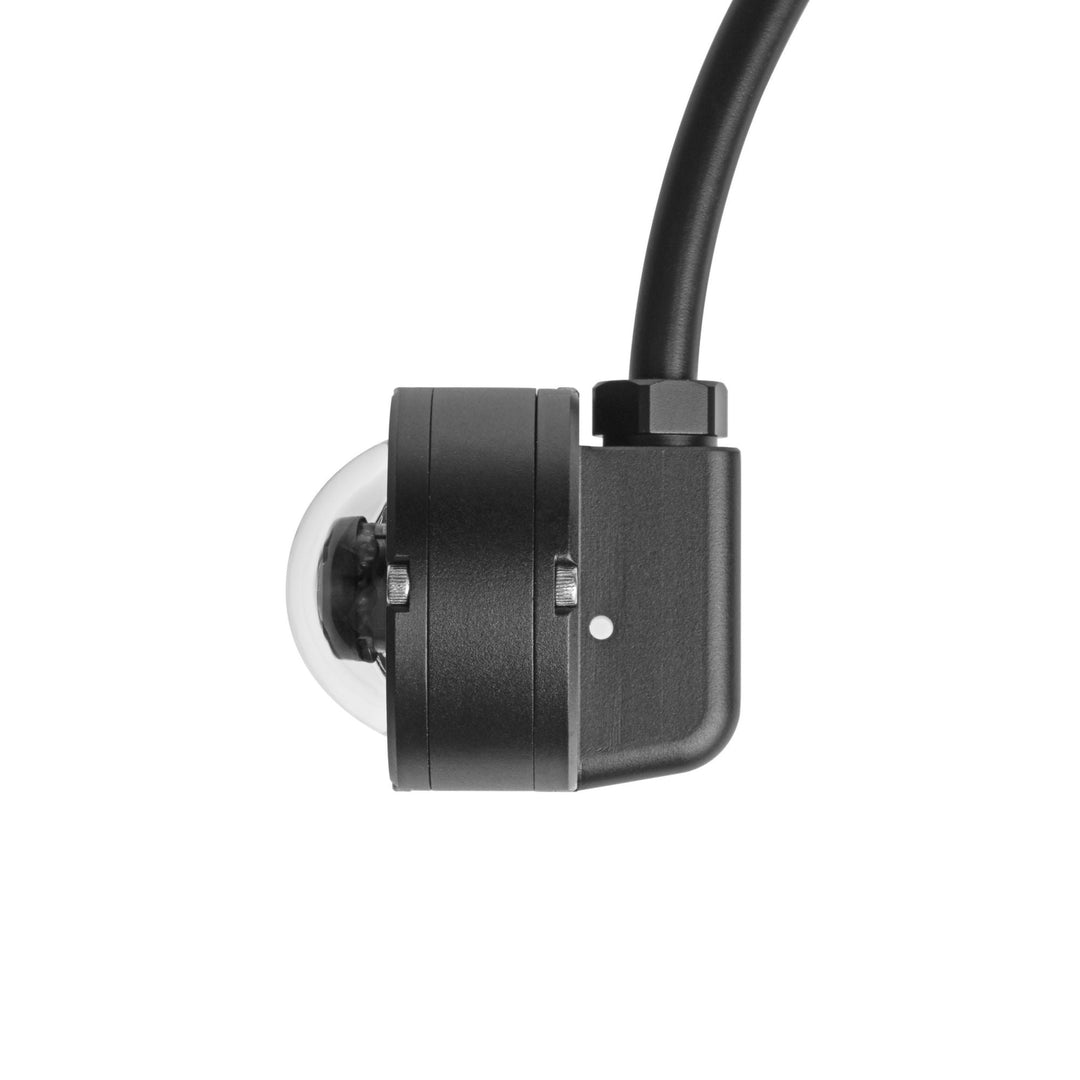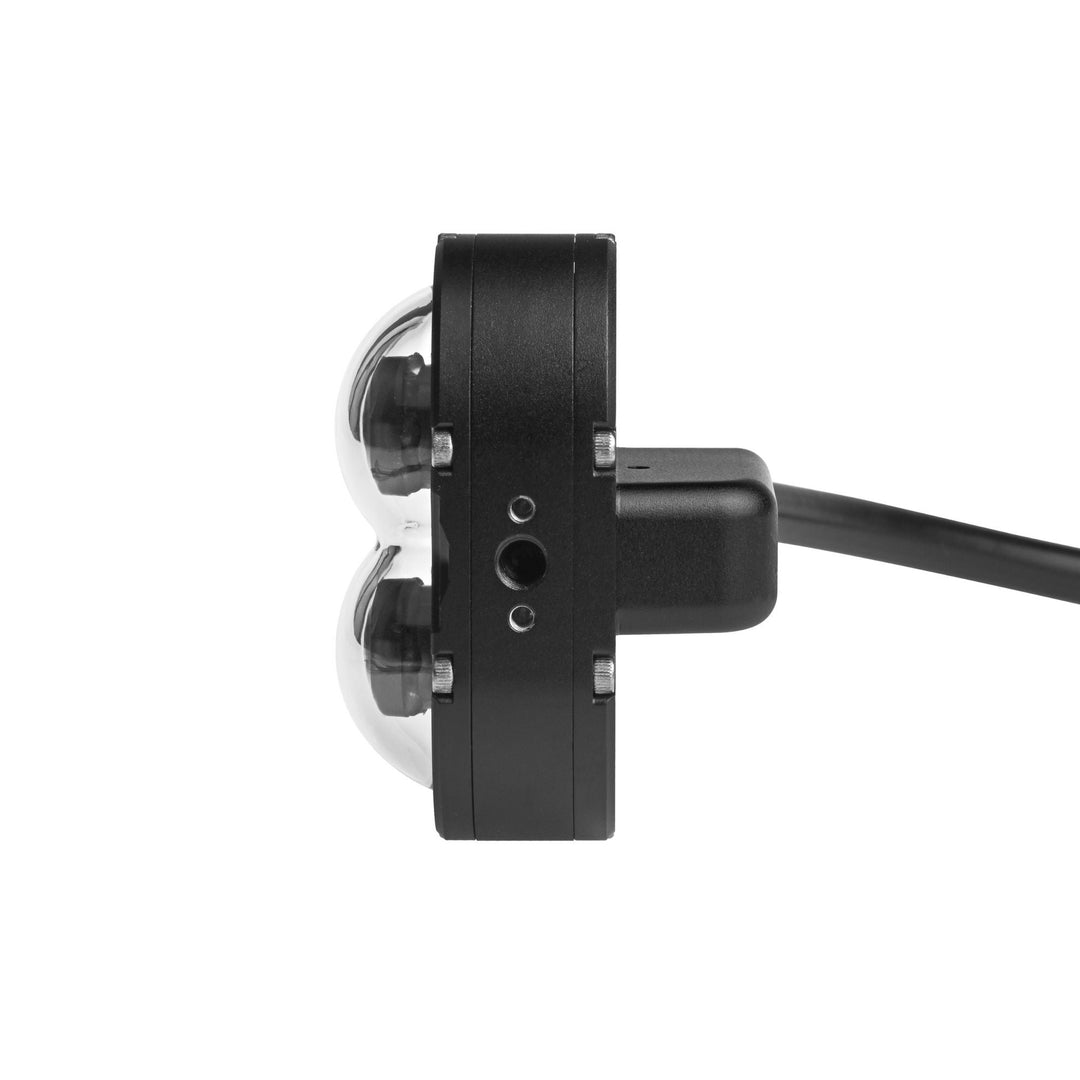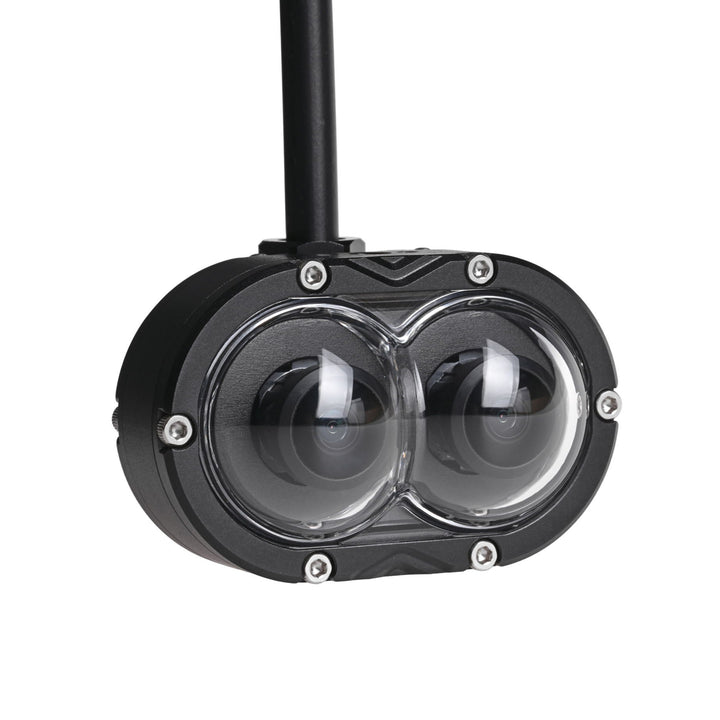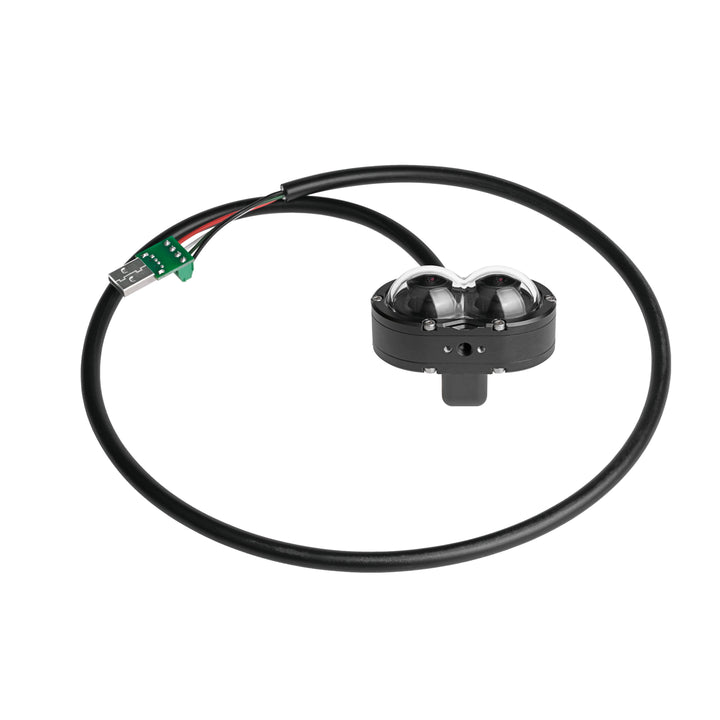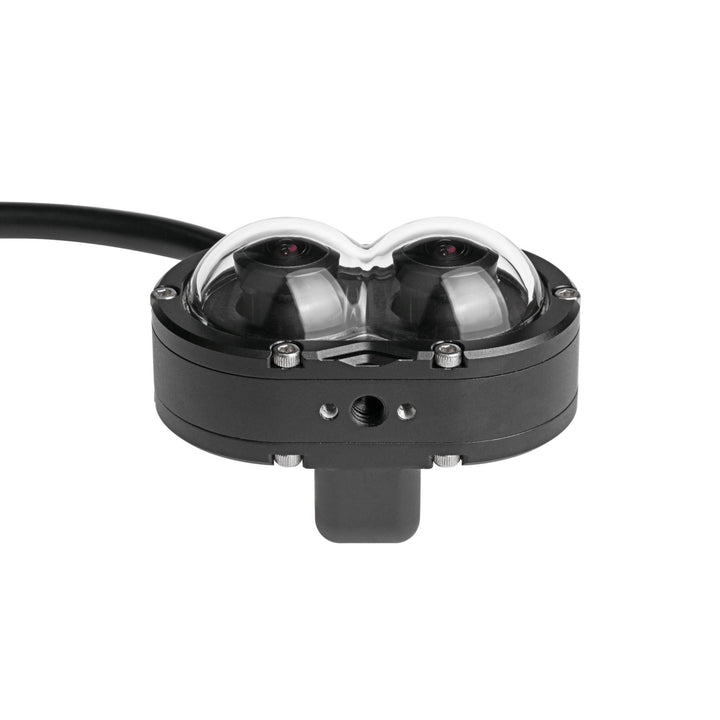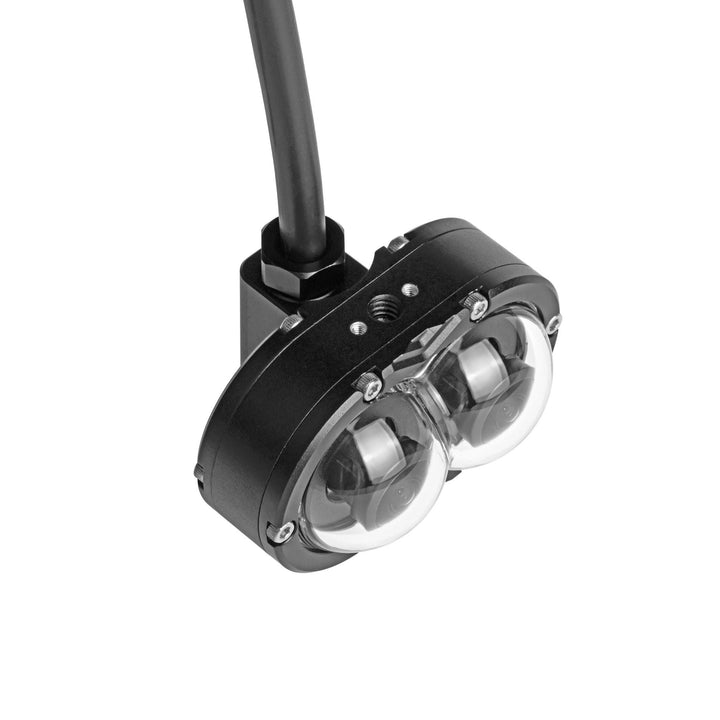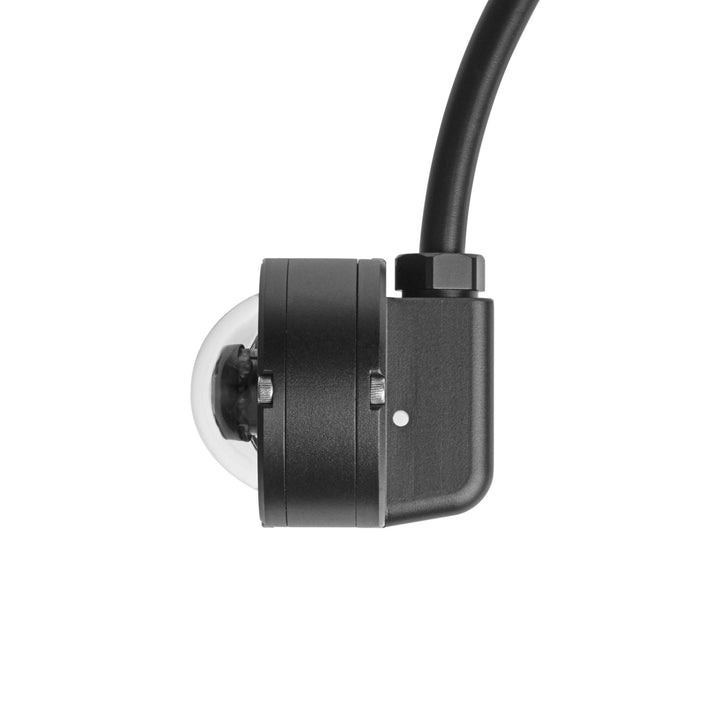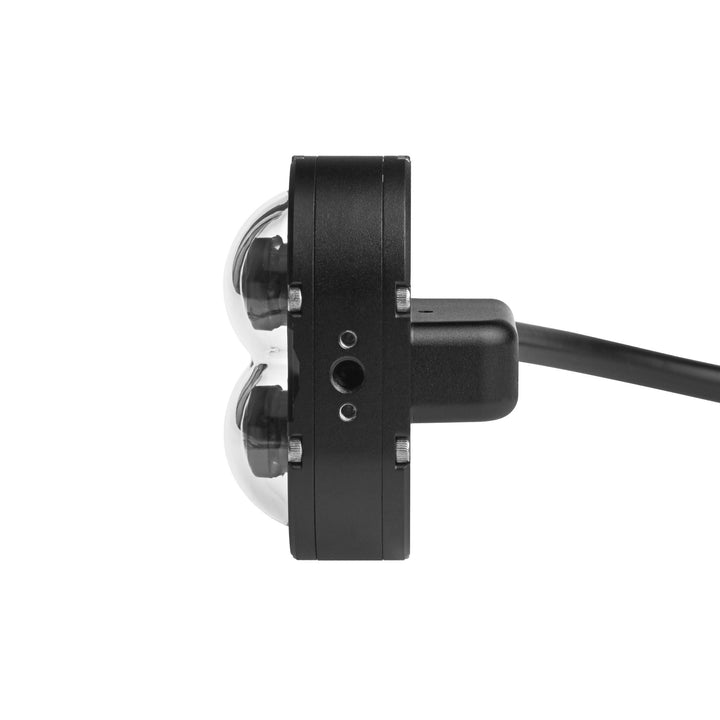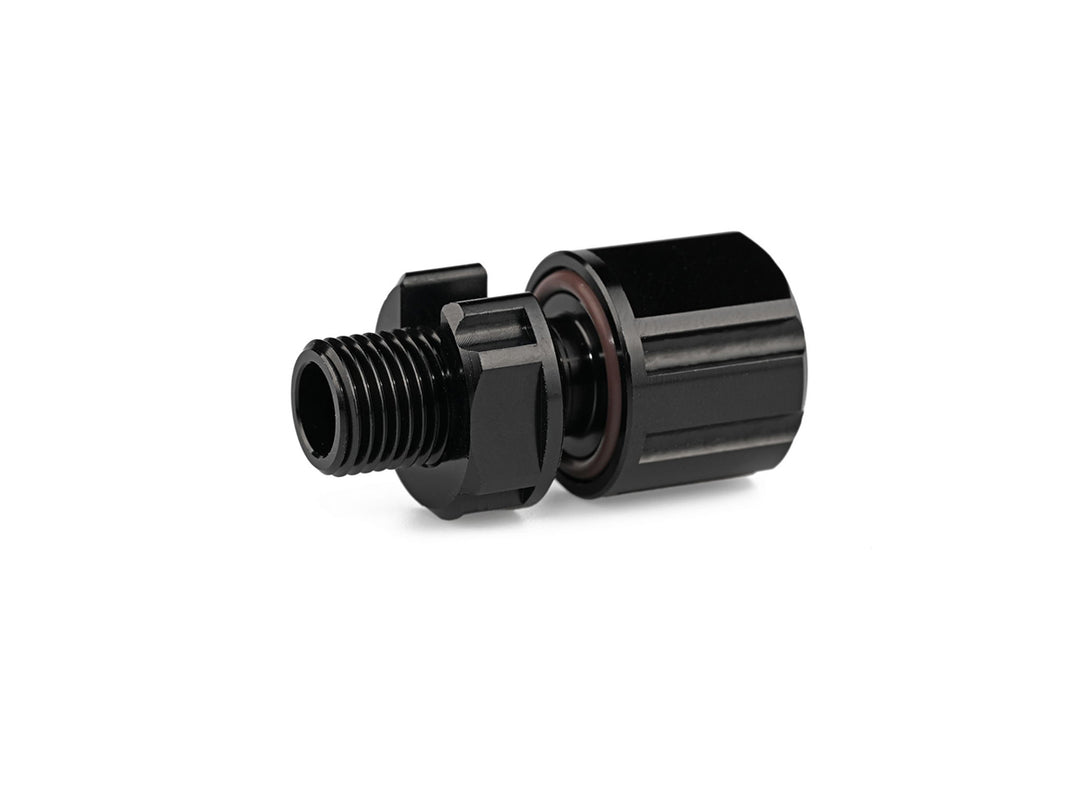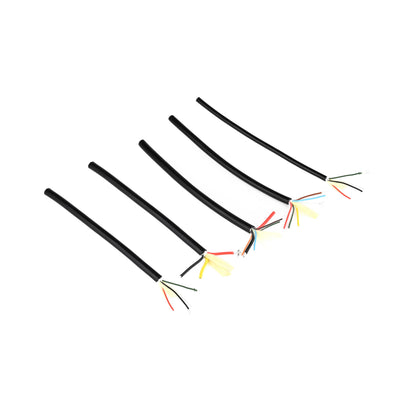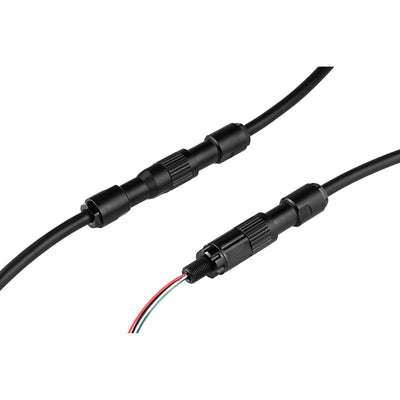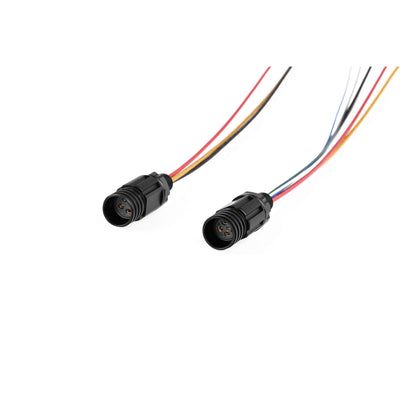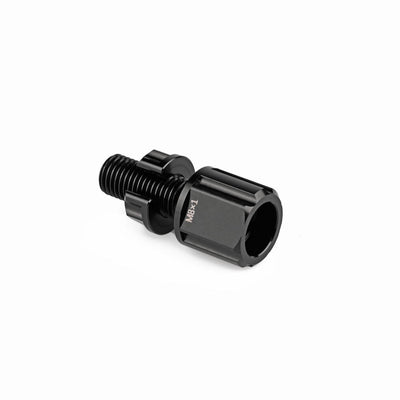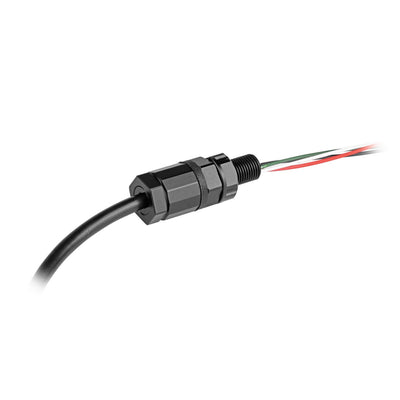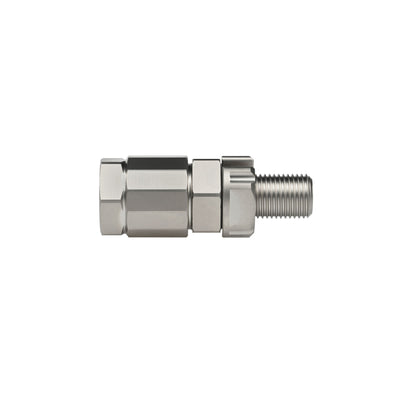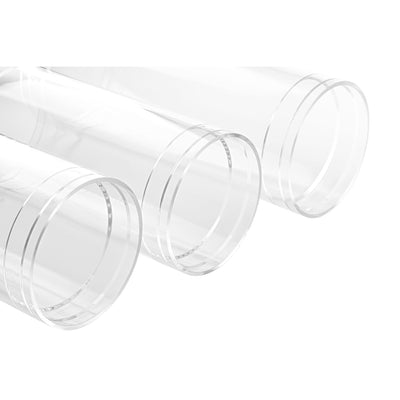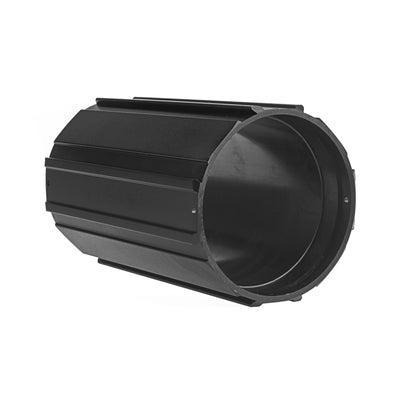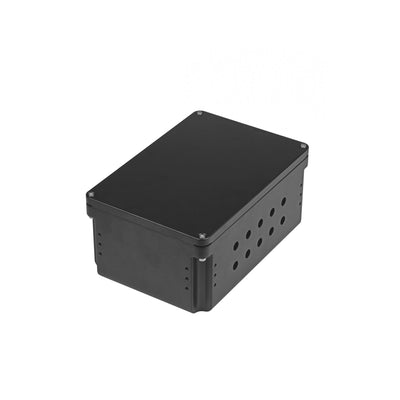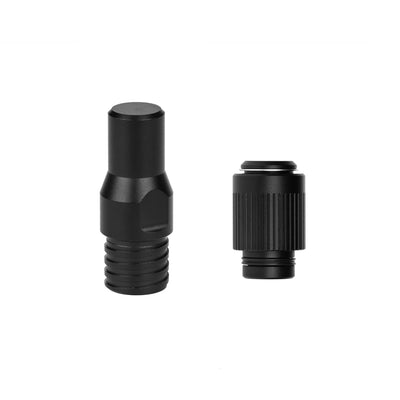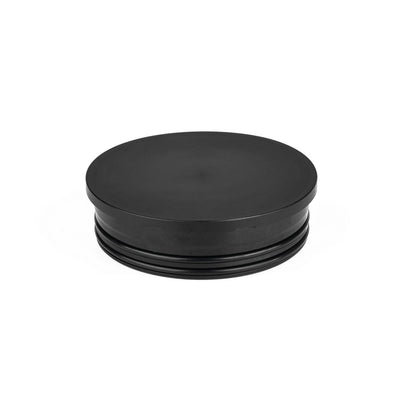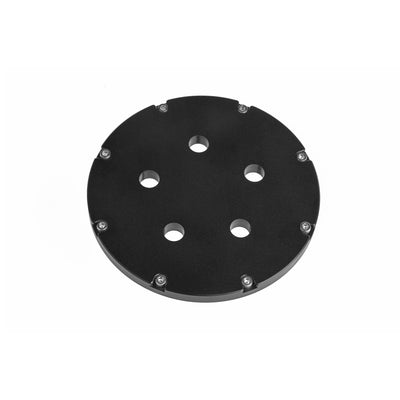This camera module integrates the Unitree SV1-25 binocular vision system into a fully sealed subsea housing, making the Blu-Vision Fish-Eye Binocular Video Camera suitable for developers and system integrators with advanced vision processing needs. The rigid aluminum shell and dual-dome acrylic lens assembly provide a durable optical interface while protecting the sensitive sensor components from high-pressure marine environments.
Output is handled through a 4-conductor USB cable with defined power and data lines, allowing for straightforward connection to embedded computing platforms such as Jetson Nano, Raspberry Pi, or industrial controllers. The included underwater cable extends approximately 800 mm and is terminated internally for water ingress protection, though the tail gland penetrator is not removable without specialized tools.
As this is a development-oriented product, the Blu-Vision Fish-Eye Binocular Video Camera requires use of the Unitree SDK for video access and integration. While video feed viewing can be established via the SDK, calibration must be performed underwater to compensate for optical distortion caused by water refraction and the dome interface. Distortion and slight edge occlusion are inherent to the ultra-wide fisheye lens design and dome construction and should be accounted for in image processing pipelines.
The housing includes multiple threaded mounting options (2 × 1/4" ports and 4 × M3 threaded holes) for secure attachment to ROV frames, gimbals, or fixed mounts. With its low power requirement and wide-angle stereo vision capability, the Blu-Vision Fish-Eye Binocular Video Camera is well-suited to vision-based navigation, simultaneous localization and mapping (SLAM), and 3D perception in subsea environments.
Cable Penetrator Compatibility – For 4-Core (2x 24AWG / 2x 26AWG) Cable Used in Blu-Vision Fish-Eye Binocular Video Camera
The Blu-Vision Fish-Eye Binocular Video Camera comes pre-installed with a 4-Core (2x 24AWG / 2x 26AWG) Underwater Cable (BS-SSC-4CORE-BLK-MXA1). The table below provides guidance on compatible penetrators and gland cable penetrators that work with this cable. Use this reference when selecting a watertight feedthrough option for Blu-Sub acrylic enclosure tubes, Blu-Sub aluminum enclosure tubes, Blu-Sub watertight box enclosures, junction boxes, or custom camera housing installations.

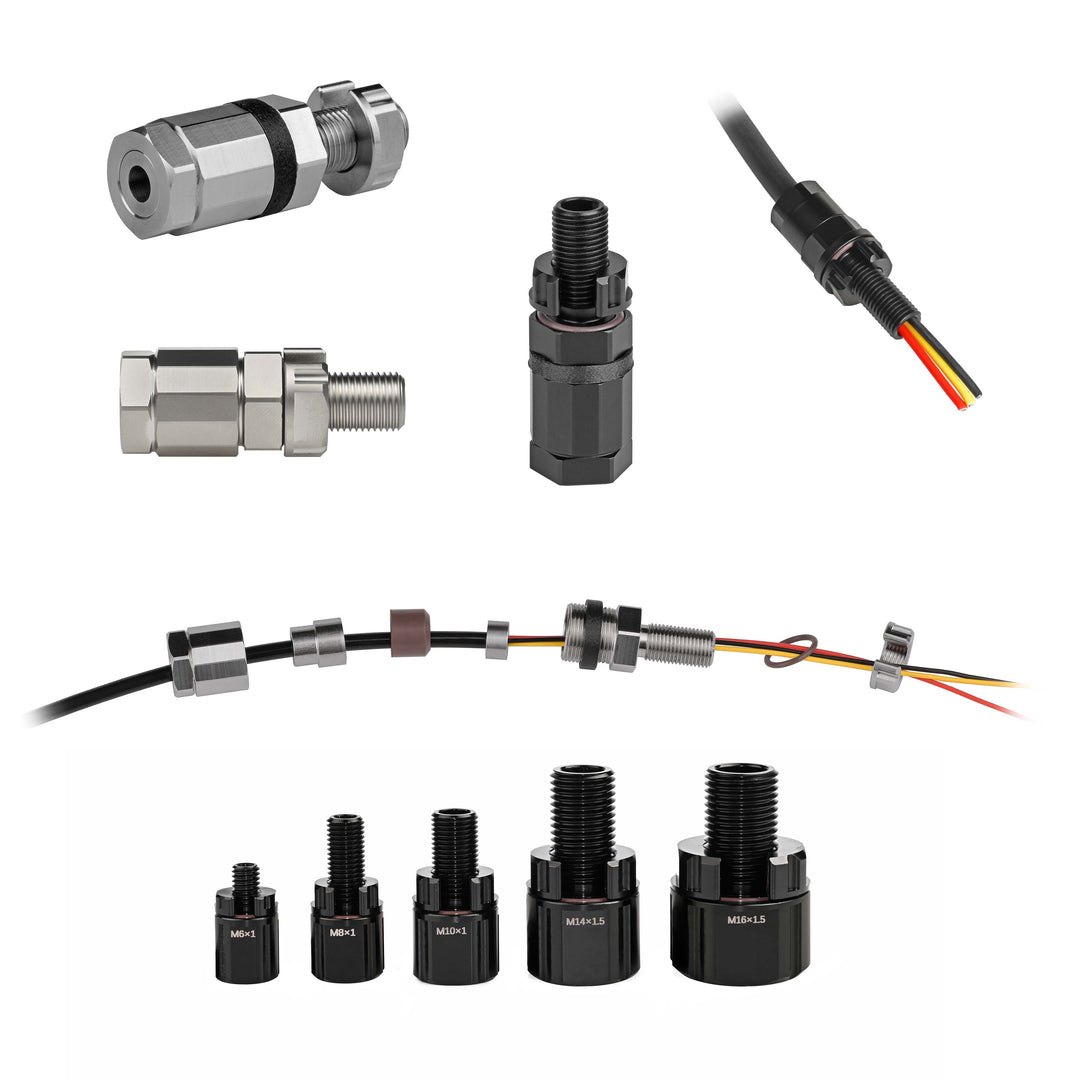
Sold Separately
Note: A compatible cable penetrator is required to waterproof and secure the cable connection to your enclosure. This product uses the Deep-Sea 4-Core (2x 24AWG / 2x 26AWG) Underwater Cable . Choose a penetrator below that matches your depth and housing requirements.
Blu-Sub offers four types of cable penetrators designed to work with its subsea power and communication cables, each suited for different underwater applications:
Deep-Sea Cable Penetrators – Standard body design for high-pressure, full-depth deployments. Depth Rating: Up to 1,000 m / 3,281 ft
Deep-Sea M10 Gland Cable Penetrators – Threaded M10 penetrators with compression glands for added strain relief and modular housing use. Depth Rating: Up to 1,000 m / 3,281 ft
Low-Depth M10 Gland Cable Penetrators – Compact and cost-effective option for shallow water or low-pressure systems. Depth Rating: Up to 100 m / 328 ft
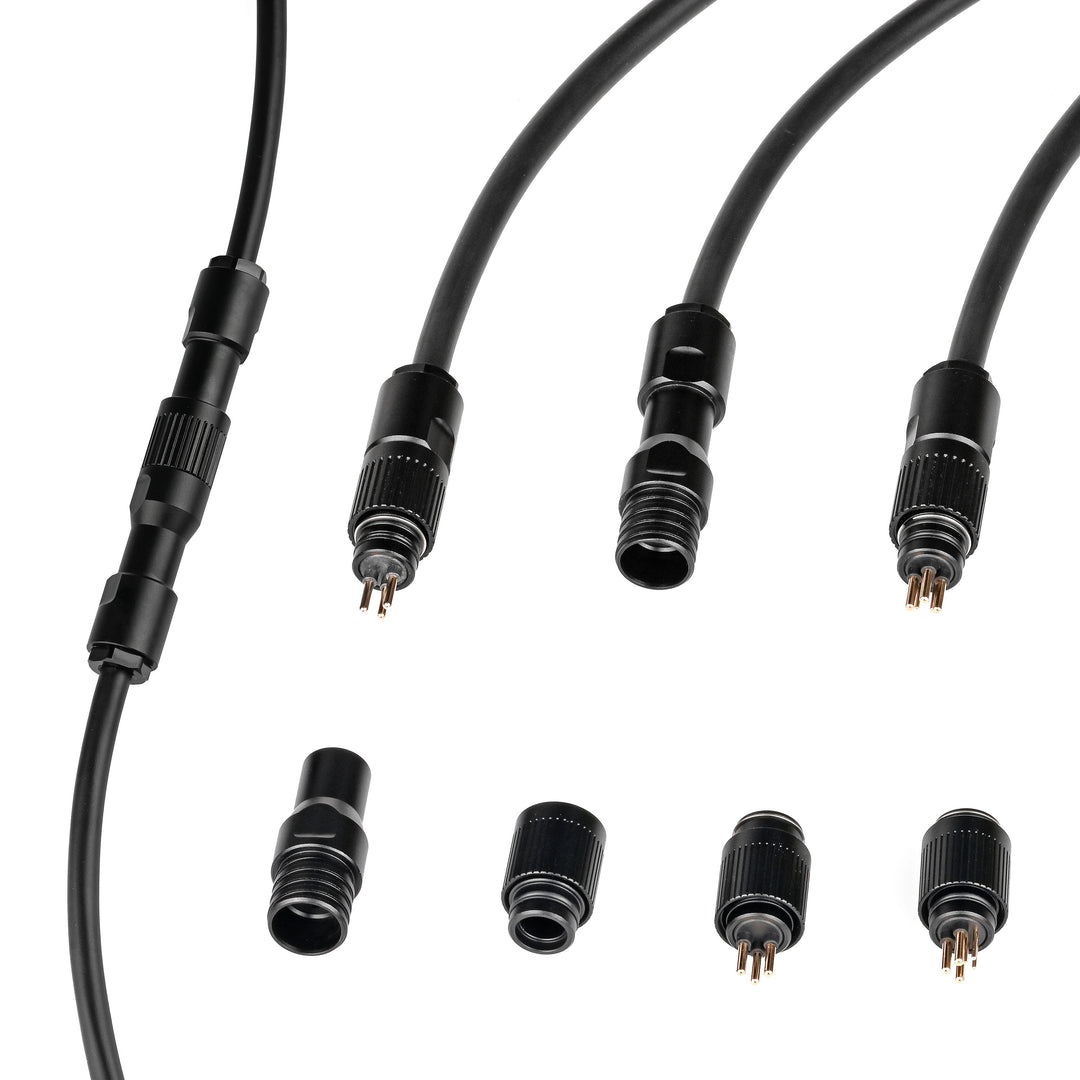
Sold Separately
About the Cable:
This product uses the Deep-Sea 4-Core (2x 24AWG / 2x 26AWG) Underwater Cable, a rugged subsea cable designed for power and signal transmission. For modular or extended installations, several compatible connection options are available:
Deep-Sea Cable Connectors – Female Socket & Male Plug
Inline plug-and-socket connectors that allow the Deep-Sea Underwater Cable to be terminated with sealed ends for removable, watertight device connections.
Deep-Sea Cable Connectors – M10 Bulkhead
Panel-mounted connector designed to interface with enclosure walls or end-caps. Requires a matching plug to form a sealed connection.
Deep-Sea Cable Connectors – Dummy Sealing Cap
Protects unused cable connectors during storage, transport, or inactive operation by sealing off exposed ends against water ingress.
Subsea M10 Coupling Tube
Enables secure inline splicing of two cable segments using penetrators and potting compound. Also useful for relocating penetrator-mounted devices like subsea lights or switches to more accessible positions.
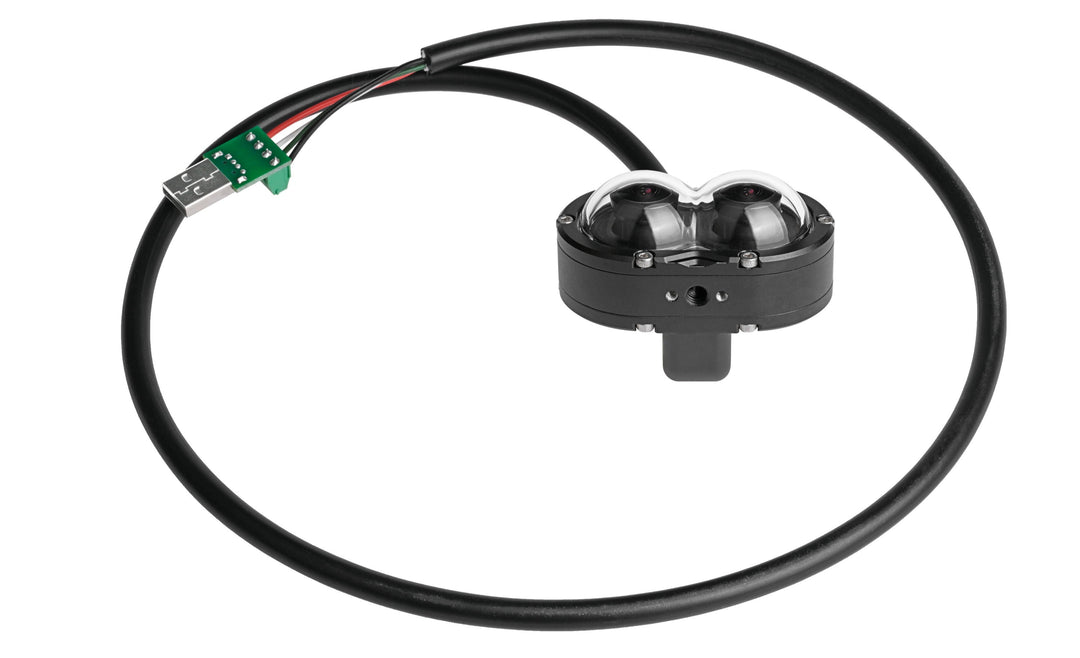
| Specification | Blu-Vision Fish-Eye Binocular Video Camera |
|---|---|
| Material | Black Anodized Aluminum + Acrylic |
| Appearance | Black Anodized |
| Maximum Rated Depth | 300 m / 984 ft |
| Screen Occlusion | The edges have slightly black edge shelter. |
| Distortion | There is distortion in the fisheye lens, and the dual dome end cap cover will also produce slight distortion. |
| Temperature Rating (water) | -4 ~ 40°C / 32 ~ 104°F |
| Mounting Interface | 2 × 1/4 ports and 4 × M3 threaded holes |
| Chip Parameter | 1280(H) × 800(V) = 1.0 MP |
| Optical Parameter | 1/4-inch (4.5 mm) |
| Shutter Type | Color Global Shutter |
| Viewing Angle (air) | V = 220° (Y = 1.35 mm) / H = 220° (Y = 1.80 mm) / D = 220° (Y = 2.29 mm) |
| Lens Type | Prime Focus |
| Base Line | 25 mm (distance from left lens center line to right lens center line) |
| Output | USB2.0 |
| Image Output Format | MJPEG / YUV2 |
| Supported Resolutions / Frame Rates | 1856×800@30FPS / 928×400@30FPS / 60FPS |
| Power Supply | 5 V / 200 mA |
| Filter Cutoff Frequency | T = 50% at 650 ± 10 nm |
| Cable | 4-Core (2x 24AWG / 2x 26AWG) Deep-Sea Underwater Cable |
| Cable Length | Approx. 800 mm |
| Wiring Definition |
Red: +5VDC; Black: GND; White: DATA-; Green: DATA+ |
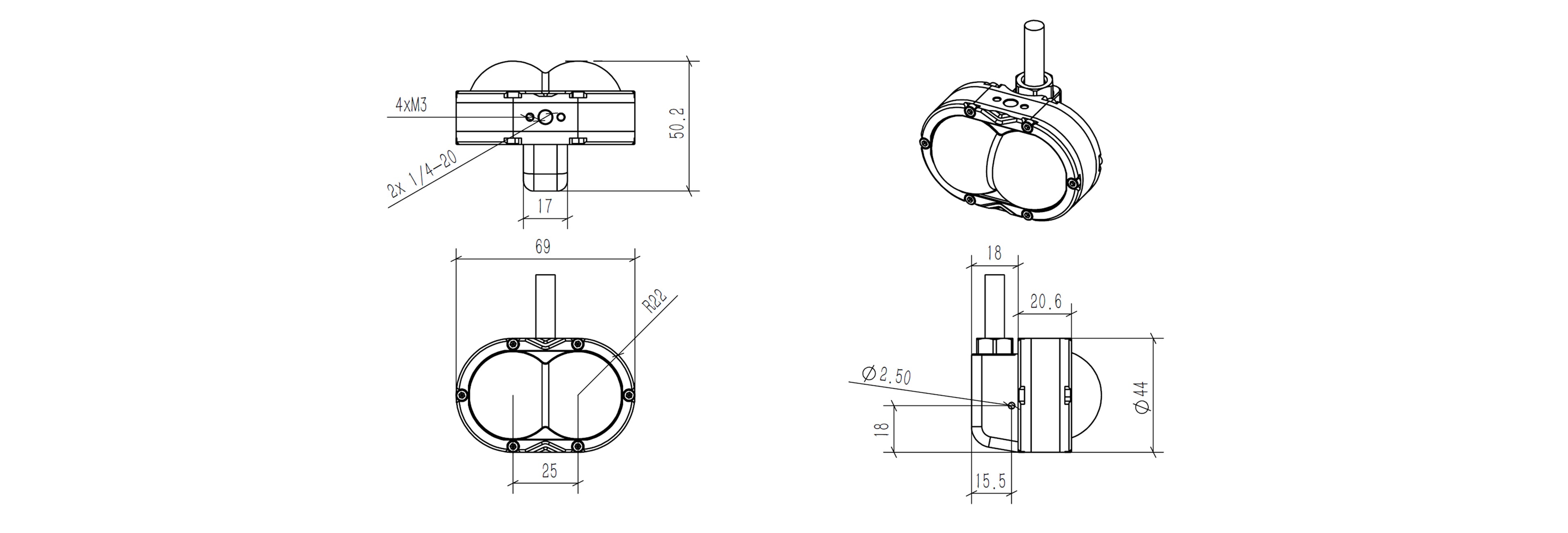
- Refer to the official Unitree documentation and SDK for setup, calibration, and software integration.
- Ensure you have the necessary programming and system integration capabilities before attempting to use this device.
- All downloads provided are publicly available Unitree resources.
- For the most up-to-date documentation and firmware, visit www.unitree.com.
- This product includes components made by Unitree. However, Unitree may not provide support to customers who did not purchase directly from them.
- Blu-Sub does not offer post-purchase coordination or technical support for the Blu-Vision Fish-Eye Binocular Video Camera.
Can I directly view the video feed by connecting to a computer?
No. A software development kit (SDK) is required to access and view the video feed from the Blu-Vision Fish-Eye Binocular Video Camera. Direct plug-and-play viewing is not supported.
Can the SDK be used immediately for development?
Yes. The SDK allows immediate access to the video stream for development purposes. However, if you intend to apply image processing or computer vision algorithms, those may need to be recalibrated for underwater use due to the distortion and refraction introduced by water when using the Blu-Vision Fish-Eye Binocular Video Camera.
Can the tail gland penetrator be removed?
No. The gland penetrator is factory-installed and requires specialized tools for removal. Unauthorized disassembly may compromise sealing performance and waterproof integrity of the Blu-Vision Fish-Eye Binocular Video Camera.
How should I interpret the 220° field of view?
The 220° specification refers to the ultra-wide-angle fisheye lens coverage in air. It is wide enough to capture portions of the scene behind the lens’s equator, offering exceptional situational awareness with the Blu-Vision Fish-Eye Binocular Video Camera.

